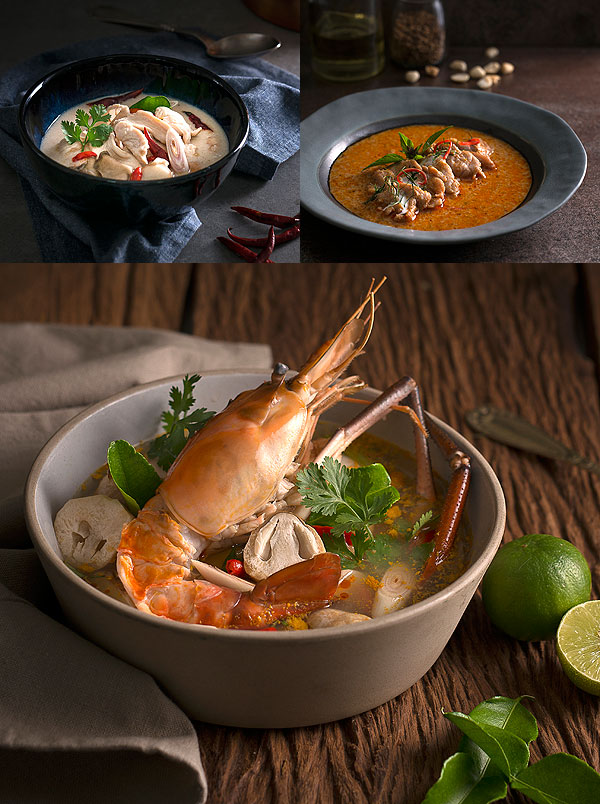
Thai food is internationally recognised for its unique flavours produced by a combination of typical herbs and ingredients. Meticulous cooking captures the hearts of food fans around the world. Readers of CCN Go website recently voted Thai food the most popular food. The favourite dishes among the international gourmets are ‘Massaman’ curry, ‘Tom Yum Kung’ spicy & sour Soup, Roasted Meat Spicy Salad, and the all-time hit, Spicy Papaya Salad.
A survey in major cities in USA, Australia, and European countries, identified three characteristics of Thai food that are recognisable among international food connoisseurs.
Taste – a perfect blend of sour, sweet, and salty flavours, bringing about a harmoniously delicate savour.
Aroma – a unique aromatic effect resulting from myriad herbs and spices used in the recipes. The aroma is said to be felt in every mouthful.
Diversity – Thai food is deemed to be healthy, providing various nutrients from all the different ingredients used in each dish.
The National Food Institute, Ministry of Industry, aims to position Thai food in the international forefront by standardising Thai food flavours.

“The Authentic Thai Food for the World” project was initiated to set an international standard of Thai food, especially authentic taste. The standard embraces applied sciences in food element analysis, both physically and chemically, to develop a taste test system that offers a single standard of taste in line with original recipes. Variables are analysed on the basis of materials, cooking methods, and taste proofing by food specialists. The collected data is kept in a recipe library as key reference. Taste, fragrance, and colour are analysed to ensure they meet the standard.
The taste test tool is titled ‘e-delicious’ and has three main aspects:
‘Electronic Nose’ analyses chemical elements in odours of different foods and recognise odours that promote appetite.
‘Electronic Tongue’ measures fundamental flavours – sourness, sweetness, saltiness, spiciness – and figures out an appropriate ratio of each flavour to meet the original taste of the particular dish.

‘The Central Processing Unit’ analyses and computes all acquired inputs and compares them with reference data in the recipe library, matching it with the standard taste.
Authentic Thai Food for the World is seen as an effective catalyst for resolving taste disparities in Thai food found all over the world. This will push Thai food to new heights of popularity and success at international level.
Thai food restaurant owners and entrepreneurs who participate in the project and whose dishes pass the taste test will be endorsed with ‘Authentic Thai’ certification. The standard will also apply to the taste of ingredients used in Thai cuisine as well as Thai processed foods, thereby enhancing the country’s competitive-edge in the international food industry going forward.